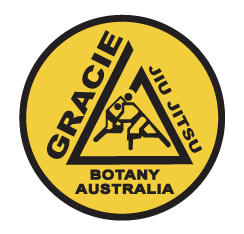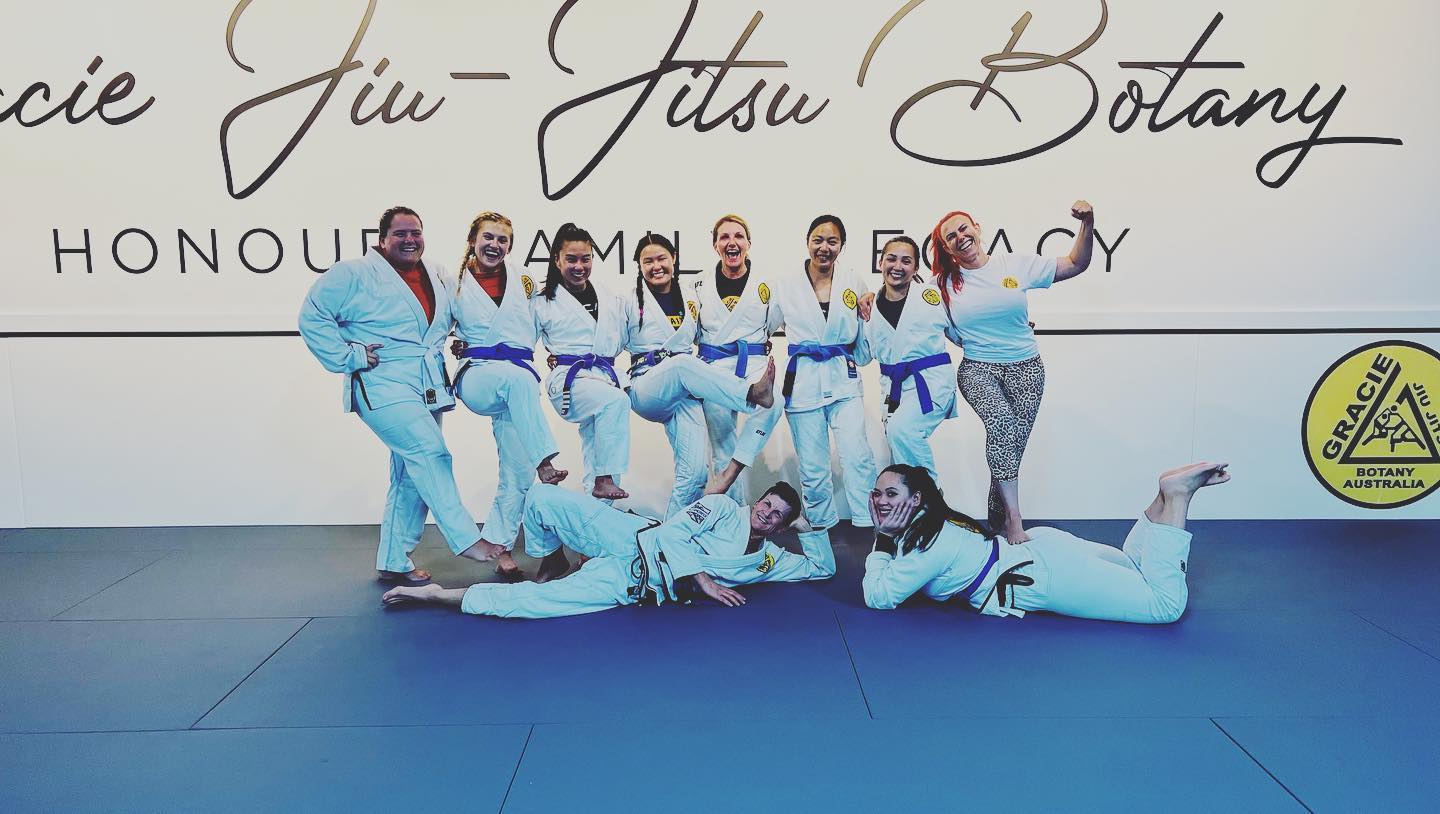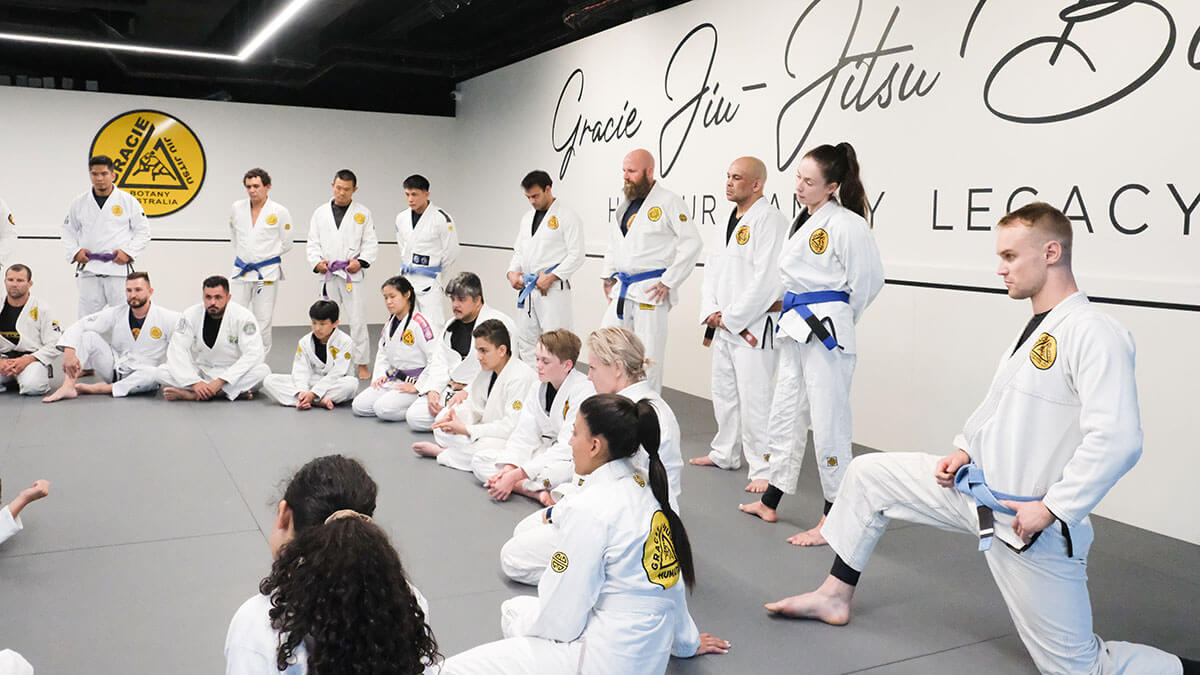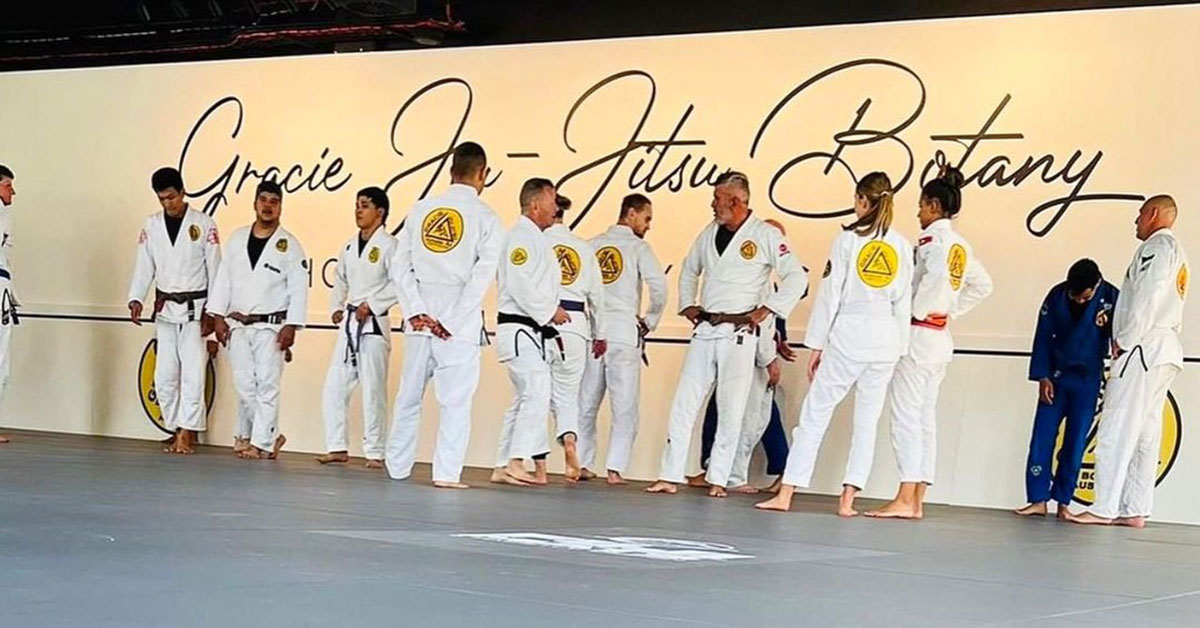There will always be debate over which martial art is “the best” for self-defence, but it’s generally agreed that Brazilian Jiu-Jitsu is in that conversation. And because it’s about momentum and leverage rather than strength and power, BJJ is particularly useful for children.
But there are more reasons beyond self-defence that makes Jiu-Jitsu great for kids. (If you do want to read more about BJJ bullyproofing kids, check out this blog.)
The reasons are numerous. BJJ is a great workout and introduces your kids to a healthy lifestyle. Like team sports, there’s also a significant social element wherein kids will make friendships and broaden their social circles. But perhaps most importantly, Jiu-Jitsu teaches life skills like perseverance and resilience. The earlier these are learned, the better.
We teach kids classes every day at Gracie Botany, our eastern suburbs BJJ academy. We welcome boys and girls as young as four years old, and segment classes between tots, kids and teens. Here’s what you need to know about martial arts for kids.
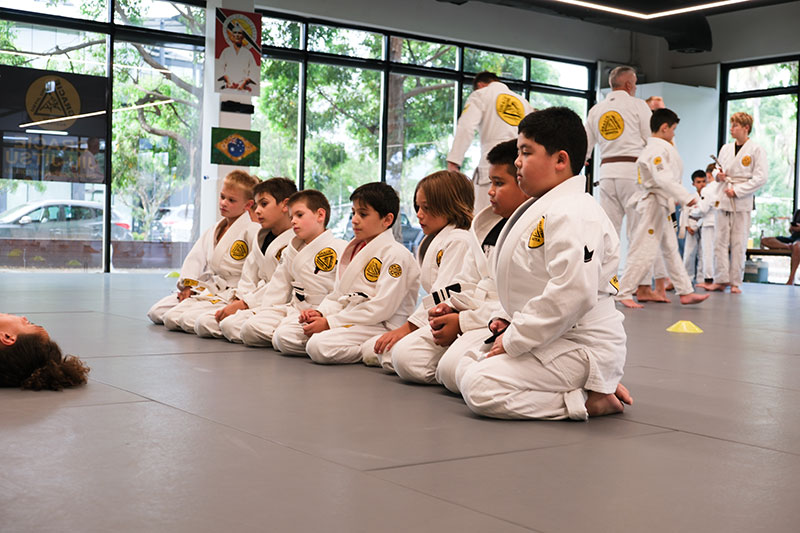
Recap: What is BJJ?
Not completely sure what Brazilian Jiu-Jitsu even is? No problem.
BJJ is a grappling martial art that places emphasis on ground combat. There are two big reasons it focuses on ground-based combat. The first is the old adage that many fights end up on the ground anyway. But the second, more importantly, is that people are less able to take advantage of size and strength advantage when they’re on the ground. (This is because power is mostly generated through the legs: think about how much stronger your legs are than your arms.)
Because of this, it makes sense for a smaller person to take their aggressor to the ground. To that end, BJJ teaches practitioners how to take an opponent from standing to the ground. They’ll then learn how to get themselves in a dominant position, one where they’re safe from harm but from which they can apply a submission hold. Finally, they’ll learn how to apply those holds.
At Gracie Botany, we tailor classes based on the age composition of the classes we teach. Kids aged 4-7 are taught Jiu-Jitsu principles and movements through fun games, for instance. As the students get older, there are less games and more focus on technique. Eventually kids will begin sparring with each other, where they can see what techniques work for them.
BJJ makes people better
Again, let’s forget about self-defence for a moment here. Equally important is the fact that martial arts in general and BJJ in particular make students emotionally stronger.
Unlike many martial arts, you don’t need to be super athletic to succeed in Brazilian Jiu-Jitsu. Agility, coordination, and power all help, of course, but they’re not as essential as they are in disciplines like Muay Thai or Taekwondo, for instance. What kids do need, however, is resilience and perseverance.
BJJ is complicated. There are hundreds of techniques to learn, both offensively and defensively. And because it’s a spar-heavy martial art (once kids become teenagers, they’ll begin sparring in every lesson), there is a constant element of failure. Everyone who practices BJJ gets tapped out regularly, it’s a built-in part of the martial art.
Students of all ages build up their resilience when they shake off defeat. Jiu-Jitsu teaches kids how to learn from their losses and come back better for it, and to understand failure as part of the process of progress.
More than any other martial art, BJJ teaches the principle that resilience and perseverance, not talent, are the essential elements of success. You don’t need us to tell you how valuable this lesson is for life off the mats!
Social skills
One of the best reasons for signing kids up to a team sport like soccer or cricket is because of the bonds they build with their team mates. Martial arts classes aren’t team affairs, but academies like Gracie Botany are absolutely places where friendships are forged.
Children directly interact with about half a dozen other kids each lesson through games, technique drilling and sparring. Naturally, they’ll be spending time with different training partners each class. There’s a certain camaraderie that BJJ practitioners build up by spending time on the mats together, something you can observe no matter the age of the student!
Just like a team sport, martial arts are a terrific way for kids to broaden their social circles and learn important social skills – along with the emotional, fitness and self-defence benefits they’ll get from Jiu-Jitsu training.
If you’re interested in signing your kid up to martial arts classes, come into Gracie Botany in the eastern suburbs for a free trial class.
